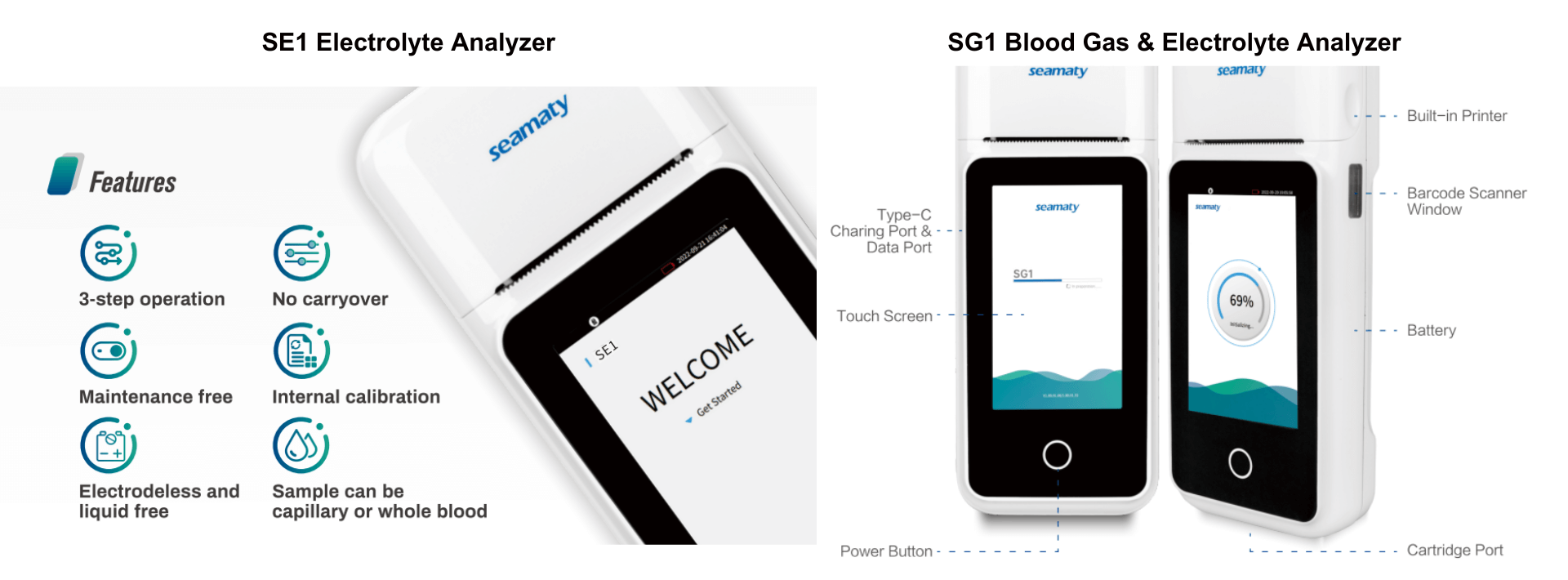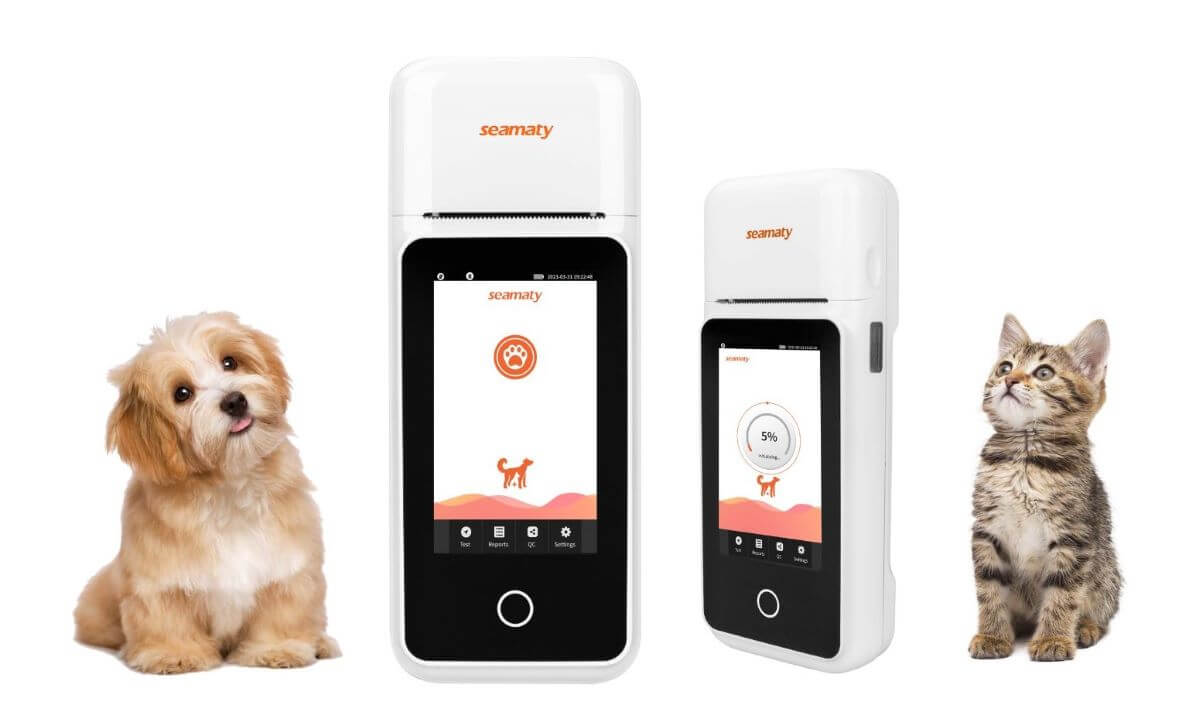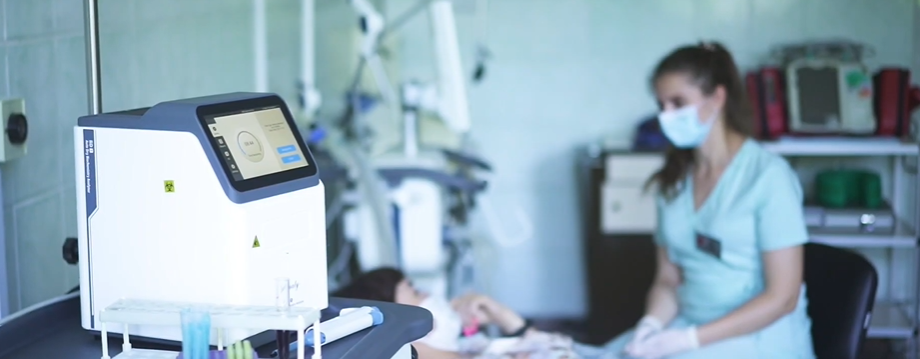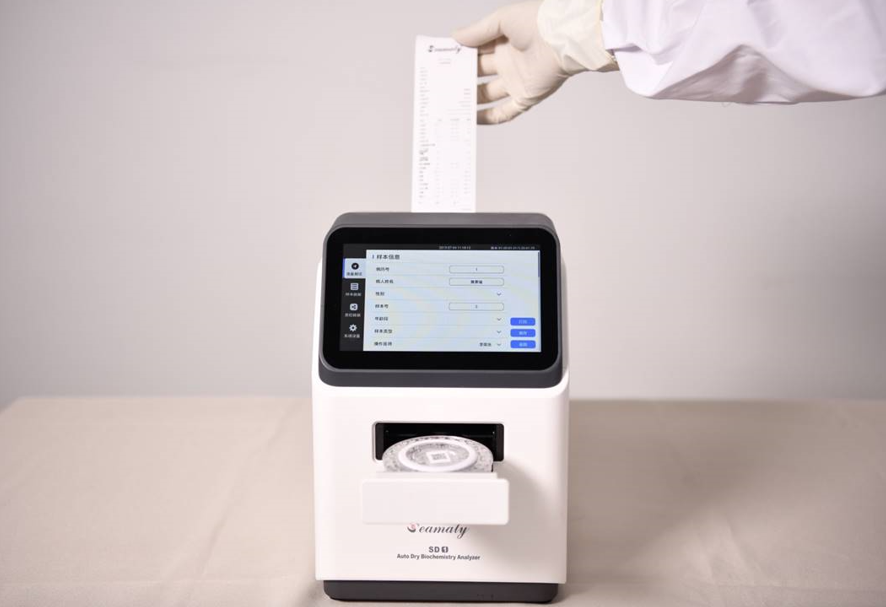release time:2023-09-25 15:17:46
In the realm of medical diagnostics, the measurement of electrolytes holds paramount importance. Electrolyte levels in the body can be indicative of various health conditions. This blog post aims to shed light on and compare two crucial types of analyzers: Electrolyte Analyzers and Blood Gas & Electrolyte Analyzers.
Electrolyte Analyzers are specialized devices designed to measure the concentration of specific electrolytes in biological fluids such as blood, plasma, serum, or urine.
Electrolyte Analyzers measure key electrolytes such as sodium (Na+), potassium (K+), chloride (Cl-), calcium (Ca2+), and bicarbonate (HCO3-).
They find applications in monitoring and managing medical conditions related to kidney function, diabetes, heart conditions, and electrolyte imbalances.
These analyzers employ specific technologies to provide accurate measurements and are generally suited for laboratory use.
Blood Gas & Electrolyte Analyzers are advanced devices that not only measure electrolyte levels but also analyze blood gases like oxygen (O2) and carbon dioxide (CO2), along with pH levels.
These analyzers measure a comprehensive range of parameters including pH, pO2, pCO2, bicarbonate (HCO3-), sodium (Na+), potassium (K+), chloride (Cl-), and calcium (Ca2+).
They are vital for assessing respiratory function and acid-base balance in addition to electrolyte balance, making them crucial in critical care settings.
Blood Gas & Electrolyte Analyzers utilize sophisticated microfluidic and microbiosensing technologies, offering lab-quality results in a compact, portable device.
|
|
Definition and Purpose |
Parameters Measured |
Use Cases and Applications |
Key Features and Technology |
|
Electrolyte Analyzers |
Specialized devices measuring specific electrolyte concentrations in biological fluids. |
Sodium (Na+), Potassium (K+), Chloride (Cl-), Calcium (Ca2+), Bicarbonate (HCO3-) |
Monitoring and managing medical conditions related to kidney function, diabetes, etc. |
Utilize specific technologies for accurate measurements; typically suited for labs. |
|
Blood Gas & Electrolyte Analyzers |
Advanced devices measuring electrolytes as well as blood gases (O2, CO2) and pH levels. |
pH, pO2, pCO2, Bicarbonate (HCO3-), Sodium (Na+), Potassium (K+), Chloride (Cl-), Calcium (Ca2+) |
Assessing respiratory function, acid-base balance, and electrolyte balance in critical care settings |
Employ microfluidic and microbiosensing technologies for comprehensive analysis. |
Electrolyte Analyzers focus solely on measuring electrolyte concentrations, while Blood Gas & Electrolyte Analyzers provide a broader analysis, incorporating blood gases along with electrolytes.
Blood Gas & Electrolyte Analyzers measure additional parameters such as blood gases (O2 and CO2) and pH, beyond the electrolytes.
The broader scope of analysis with Blood Gas & Electrolyte Analyzers allows for a more comprehensive assessment of a patient's condition, especially in critical care scenarios.
The choice of analyzer depends on the specific clinical requirements and the need for either a focused or comprehensive analysis.
- Specialized and efficient in measuring electrolyte concentrations
- Typically cost-effective
- Limited in scope to electrolyte analysis only
- Comprehensive analysis of blood gases and electrolytes
- Critical for immediate treatment decisions in acute care settings
- Typically more expensive than standalone electrolyte analyzers
|
|
Advantages |
Disadvantages |
|
Electrolyte Analyzers |
- Efficient measurement of electrolyte concentrations |
- Limited to electrolyte analysis only |
|
Blood Gas & Electrolyte Analyzers |
- Comprehensive analysis including blood gases and electrolytes |
- Typically more expensive than standalone electrolyte analyzers |
The Seamaty SG1 blood gas & electrolyte analyzer is a compact device that combines microfluidic and microbiosensing technologies. It offers comprehensive blood gas and electrolyte testing with lab-quality results. The analyzer has a user-friendly design, providing a simple three-step testing process and allowing real-time printouts of test results for immediate treatment decisions. The SG1 weighs only 600g and can be easily carried to the patient's side, supporting up to 60 completed cartridge tests with its long-lasting battery.
The Seamaty SE1 electrolyte analyzer is purpose-built for enhancing patient care across various healthcare settings. Its compact size and user-friendly interface make it ideal for use at the hospital bedside, physician's office lab, urgent care clinics, and retail clinics. Utilizing the Ion Select Electrode (ISE) working principle, the SE1 can analyze various sample types, including capillary blood, whole blood, serum, plasma, and aqueous solutions, providing flexibility and convenience in testing. Weighing only 600g and being handheld and portable, the SE1 offers mobility and efficiency in electrolyte analysis.

In conclusion, both Electrolyte Analyzers and Blood Gas & Electrolyte Analyzers play critical roles in medical diagnostics. The choice of analyzer depends on the specific clinical requirements and the need for either focused electrolyte analysis or a more comprehensive assessment including blood gases. Understanding their differences and capabilities is vital for healthcare professionals to make informed decisions and ensure optimal patient care.
- Recommended Further Reading
[1]. How to Choose the Perfect Electrolyte Analyzer for Your Small to Mid-Sized Clinics?
[2]. The Power of Portability: Seamaty's SE1 and SG1 Analyzers Transforming Point-of-Care Testing
[3]. Roche 9180 vs. Seamaty SE1: Analyzing Electrolyte Analyzers for Near-Patient Testing
[4]. Enhancing Patient Care with Seamaty SE1: A Handheld Electrolyte Analyzer for Every Setting
[5]. Electrolyte Analyzer: Introduction, Principle, How to Use
[6]. 7 Reasons Why SE1 Handheld Electrolyte Analyzer Outperforms Traditional Models

2023-11-06
Discover the essential factors for selecting veterinary blood gas electrolyte analyzers in small animal hospitals. Learn about the game-changing Seamaty VG1, a portable solution for accurate results, rapid decision-making, and seamless integration, optimizing patient care. Make informed choices with our guide to veterinary equipment.

2022-08-03
In vitro diagnostics mainly includes molecular diagnostics, immunodiagnostics, in vitro biochemical diagnostics, etc. At present, in vitro diagnosis is the largest application scenario of microfluidic technology. In vitro diagnostic technology mainly shows the development trend of automation, rapidity, ultra-high sensitivity, high-throughput detection and non-invasive and minimally invasive.

2022-04-28
A chemistry analyzer/biochemistry analyzer is an instrument that uses the photoelectric colorimetric principle to measure a specific chemical composition in body fluids.